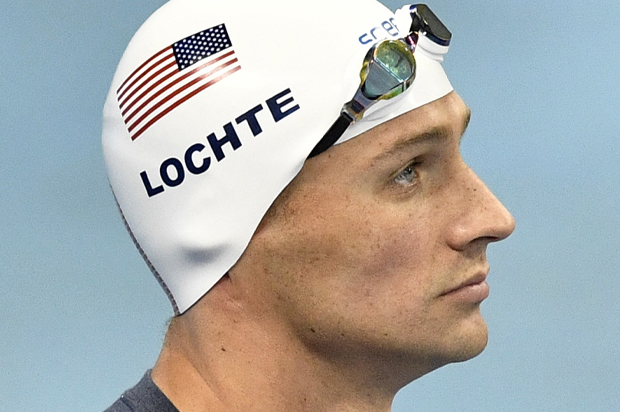It was a highlight of the Rio Olympics, and it didn’t come from one of the athletes. It came instead, unexpectedly, from the usual genial Al Roker, expressing the exasperation of a weary nation and calling it like he saw it over Ryan “Swim Shady” Lochte. “He lied,” Roker said to Billy Bush on air late last week. “He lied to you, he lied to Matt Lauer, he lied to his mom. He left his teammates hanging while he skedaddled. There was no robbery, there was no pull-over. He lied.” It was a bracing, eminently validating and extraordinarily rare moment — the correct usage of such a loaded word.
Two things endlessly demanded and rarely obtained in our culture are sincere apologies and unqualified admissions of guilt. The word “lie” gets thrown around promiscuously, an accusation hurled like grenades at people we disagree with. After “sad,” it’s pretty much in every tweet that bona fide serial liar Donald Trump sends out. Yet it’s a word that public figures, even when caught red-handed, rarely seem to be able to muster up to apply to themselves.
Nearly two decades ago, Bill Clinton famously tap-danced around the truth, denying an extramarital sexual relationship and then later saying, “I tried to walk a fine line between acting lawfully and testifying falsely, but I now recognize that I did not fully accomplish that goal and that certain of my responses to questions about Ms. Lewinsky were false.” His attorney David Kendall reiterated Clinton’s position, explaining the he “did not lie. We have not admitted that he lied, and he did not do so today.” No, instead he just responded — by his own admission — falsely.
In 2008, when Eliot Spitzer’s career went kaput in a prostitution scandal, he announced he was stepping down by admitting he “acted in a way that violates my obligation” and was “disappointed and failed to live up to the standard I expected of myself.” And last year, when a data hack revealed he’d been using the infidelity site Ashley Madison, reality star Josh Duggar called himself “the biggest hypocrite ever” and said he’d “brought hurt and a reproach to my family” — which is not the same as admitting he’d lied to them and to the public.
So deeply embedded is the taboo of actually calling a lie a lie that when Al Roker discussed Lochte’s now-well documented deceptive account of what Lochte initially described as an armed robbery, Billy Bush couldn’t handle it. To his credit, early on in the segment, Bush did cop that Lochte “lied about some details.” But, he then insisted, “He embellished some details,” to which Roker said, “There was no robbery. There was no pull-over. Nobody cocked a gun to his head. He lieeeeeeed.“
Bush ultimately continued to press, saying, “It’s not a shining moment and there are embellishing moments, there are total untruths…. In the end, he shouldn’t have lied to his mother.” Lochte, meanwhile, issued a statement last week that he apologized for not being “more careful and candid” and told reporters that “My mistake was over-exaggerating what really happened. I wasn’t lying to a certain extent. I over-exaggerated what was happened.”
This kind of semantic hair-splitting is somewhat understandable — it’s hard to come out and admit to full-blown deception. We often lie to ourselves as expertly as we do to others, justifying and rationalizing our behavior, softening the extent of our accountability. So for all the dumb, selfish crap he’s pulled, there’s at least some minor credit to be handed to Anthony Weiner, of all people. Five years ago, when he was caught sending an inappropriate image from his Twitter account, he admitted it. And he admitted the great truth about untruth. “I lied,” he said, “because I was ashamed at what I had done, and I didn’t want to get caught.”

